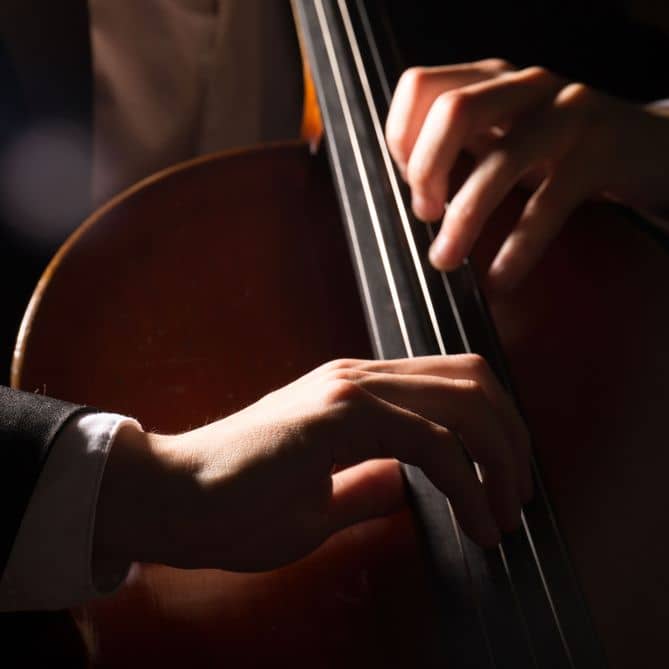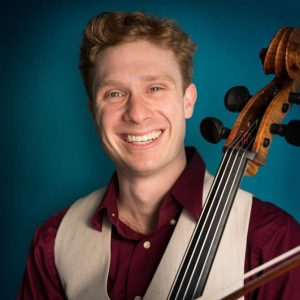
Pursuing Playful Practicing
Daniel Hoppe
By Daniel Hoppe
Three travelers met at an inn along the road.
“Inn Keeper,” they called “tell us the way to the glorious city, Constantinople!”
The Inn Keeper replied: “The way is short for some, interminable for others. For some it is effortless, for others it is arduous. Follow the road and you will find your way.”
At daybreak the three set out hoping to conclude their journey quickly and easily. Before long they came upon a mighty river. The first traveler waded in and began to swim as hard as he could. The second traveler squelched into the mud, and, feeling overwhelmed by the task ahead, decided instead to sit down on the bank and enjoy the roar of the water, the warmth of the sun, and the beauty of the woods and the rushes. The third traveler joined his companion on the bank. He also noticed the sound of the water, the feel of the sun, and presence of the woods and the rushes, and he became curious about how they might help him cross the river. He soon began using the rushes to tie pieces of wood together; building a raft. When the raft was finished, he was easily able to reach the other side, and he saw the spires of Constantinople rising beyond the next hill. Thus, did the three travelers reach their destination. The first dripping and exhausted, the second never arriving, and the third with a joyous spirit.
My cello teacher once told me that there are two types of musicians. A few for whom playing comes naturally, and the vast majority for whom it takes a lot of work. “And Danny,” he assured me, “you are amongst the latter.” What I failed to understand at the time was that his was a message about the journey not the destination. Everyone is on the road to playing naturally, with freedom and ease. Some lucky few move quickly and easily, while most of us will regularly encounter setbacks and frequently get stuck in the proverbial mud. The mental attitude we bring to encountering these obstacles has a profound impact on our progress, just as it does for the travelers in the proverb.
During my studies, I internalized my teacher’s comment and tried as hard as I could to learn the cello. Good things are worth working for, and whatnot. Whenever I encountered an obstacle I would redouble my efforts, quickly exceeding the recommended 110%. Thinking: ‘if I just work hard enough I can play anything!’ Even when it felt like I was banging my head against a wall, I kept banging until I broke through. And I was rewarded with some success. My strategy of tackling challenges with brute force carried me through three graduate degrees in music and into a professional career teaching and performing. But, this mentality of hard work prevented me from reaching the potential of comfort and freedom that is possible for everyone.
When you picture someone hard at work how do they look? Are they smiling? Do they seem happy and at peace? Or are they grimacing? Appearing frustrated, stressed, or anxious? We all have preconceived notions of what it means to work hard. I associate it with muscular strength and tension, sweat and blood. Why choose a mental attitude that encourages the use of more tension to reach our goals? Why not approach practicing in a way that makes us smile instead of grimace?!
As my teacher astutely observed, learning to play the cello can take a lot. All the more reason to find an approach that allows us to smile and enjoy the hours we must spend in the practice room. That is why I am in pursuit of playful practicing. When I encounter obstacles such as feeling resistance to sitting down to practice or struggling to master a shift, I try to avoid the work mentality that encourages me to push through and hope the pain is over quickly. Instead, I attempt to cultivate a sense of playfulness. This means letting go of the fear of getting it wrong and trusting my ability, time, and the learning process. I am in pursuit of practice time that evokes the feeling of a playground. A place that supports a sense of freedom and a willingness to take risks and make mistakes. It is an opportunity to experiment, invent games, and have fun. Thinking about playfulness helps me access these qualities in my practicing, but the specific word or idea that elicits that response may be different for every musician. What we all must ask ourselves is what mental approach will best facilitate our growth. My exploration of playful practicing has helped me acknowledge and move past my fears and increase my trust. It has made my practicing more enjoyable and more effective and I hope it does the same for you.
The pursuit begins before the instrument even leaves the case. It originates in our motivation. When the sun is shining, your bed is just around the corner, or Facebook has new notifications, why sit down to practice? It may be, as it was for me, because of fear. The fear of not knowing the notes, of not being ready for a lesson or performance, of not being good enough. This is a powerfully compelling force. But with fear as a motivator, practicing becomes a punishment, a form of self-flagellation. For some zealots, this approach may inspire ever greater devotion, but it’s not the healthiest approach to a lifelong activity.
Finding motivation through fear comes from focusing on our short comings. It emphasizes what we wish to know and how we wish to play and the fact that we aren’t there yet. But, practicing for the purpose of being better is like playing a game for the sole purpose of winning. Winning may be the objective, just as improving is for practicing, but it’s not the reason for playing. The motivation to participate is the game itself. Similarly, playful practicing isn’t about the outcome, but about enjoying our time with the instrument. My father has been practicing diligently for over half a century, not because of fear, but because he loves the sound of the cello. The first step in leaving the mentality of work behind and pursuing playful practicing is to examine our motivation. This invites a change from fearing the future to relishing the sounds we are about to create.
Even if we can get to the practice room without being forced there by external or internal pressure, we are again confronted with the same pitfall. The desire to be better NOW. With a work mentality we plunge in head long. Our time at the instrument becomes littered with phrases like “No, that’s not it!”, and quickly escalates into “Urgh, why can’t I do it?!” Focusing too much on where we want to be encourages us to push through obstacles no matter how much effort it takes. When we stop worrying about the future we can better attend to the present. But, if we let go of our desires completely we will never get anywhere. Playful practicing represents a middle way. It requires knowing where we are going and trusting our methods for getting there. In the pursuit of playful practicing we have to learn to accept where we are in the process.
The treatment of mistakes is an excellent litmus test for our level of trust in ourselves. For the cellist hard at work, mistakes are dreaded, bemoaned, and avoided at all costs. They are frustrating reminders that we are not yet at our destination. With a playful attitude, mistakes become opportunities to pause and consider. How have I arrived at this juncture? What are the beautiful aspects that are present? What are the tools at my disposal that might help me overcome this obstacle? With play, mistakes pique our interest and inspire our curiosity and creativity. They are faced with openness and acceptance instead of revulsion and conflict. This is a daunting task. It is scary to stare into the depths of what we don’t know or are unable to do. Playfulness encourages us to explore these undiscovered places, a vital aspect of the learning process. The harder we try, the more we cling to what we know; the scarier it is to venture into the unknown, the less we improve.
‘Move past the fear of not doing’ is an easy thing for me to say, sitting here in a warm café with a tasty drink. Actually freeing ourselves from our fears while we practice, is an entirely different matter. Presented with something we want, it feels natural to push ourselves, to strive for it with whatever means we have at our disposal. This is an extraordinary and wonderful phenomenon. Our whole selves try to help us achieve our dreams! Unfortunately, our efforts are often misdirected and result in unnecessary tension. It is more impactful to redirect the energy of our desire towards trusting ourselves. The more we trust, the easier it is to let go of the fear of not knowing and enjoy the journey. Once we begin to trust our own ability, our instrument, and our time, we can stop working so gosh darn hard and begin to allow more playfulness into our practicing.
I hope that as soon as you put down this essay you reach for your instrument in a new way. But, reshaping the mental approach to practicing can be a challenge. Luckily, every time we sit down with the instrument gives us a fresh opportunity. At the outset, the pursuit of playfulness can take the form of simply noticing. What ideas of work are you taking into the practice room? How does your body respond to these ideas? What is your feeling of time? Of fear? Of joy or curiosity? Over time we can begin to experiment with how practicing feels different as these variables change.
My own study of improvisation and the Alexander Technique have been particularly fruitful in cultivating my own sense of play. Indirect Procedures by Pedro de Alcantara1 and Just Play Naturally by Vivien Mackie2 are wonderful places to turn for further reading. The cello teachers Tanya Carey3 and William Pleeth4 provide excellent models for how practicing can be approached with curiosity and creativity while still striving for the highest artistic standards. I encourage you to continue to explore the tremendous wealth of information that exists on this topic. Every musician must practice, and I have yet to meet someone who doesn’t have moments of struggle with this lifelong activity. Hopefully this essay helps tip the balance away from the stress and tension of work, towards the joy and freedom of play. Happy practicing.
1 Alcantara, Pedro de. Indirect Procedures: A musician’s guide to the Alexander Technique. Oxford University Press, Oxford: 2013.
2 Mackie, Vivien and Joe Armstrong. Just Play Naturally: An account of her cello study with Pablo Casals in the 1950’s and her discovery of the resonance between his teaching and the principles of the Alexander Technique. Duende Editions, London: 2002.
3 Her wonderful resources are available at https://celloplayingiseasy.com/
4 Pleeth, William. Cello. Kahn & Averill, 1992.
Subjects: Playing Healthy, Practicing
